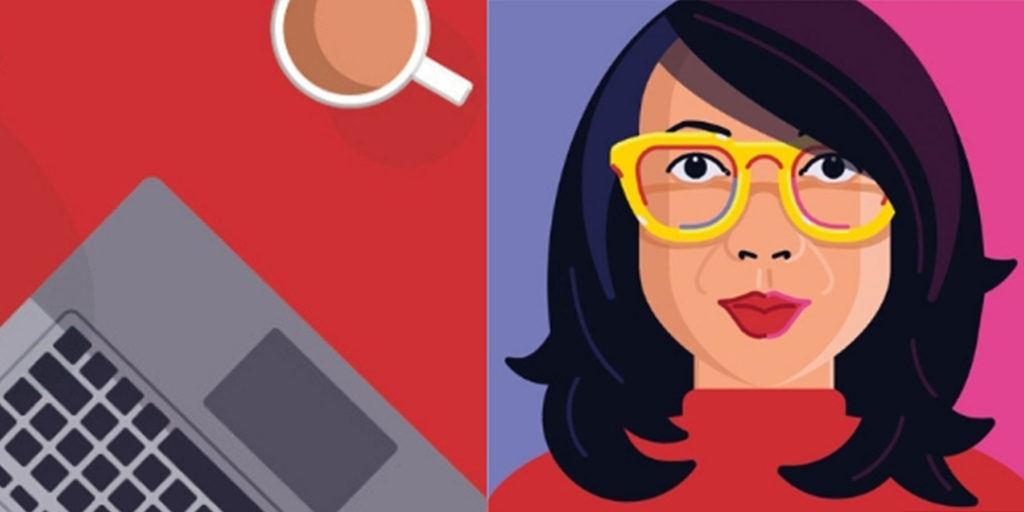One summer, I transitioned from a staff journalist into a freelance writer, speaker, and media trainer. The process was surprisingly easy. After 12 years in the industry, I’d built up a reputation, a list of contacts to pitch, and a rolodex of potential clients for coffee dates.
It was a big decision, and there were certainly challenges: overhauling my personal website, maintaining communication with my network, setting my rates. But I was excited. I threw myself back into writing, gaining steam as some of my early pitches were picked up.
Despite this hopeful start, the road soon started to get rocky. Teaching jobs that sounded promising ended up lasting only one session per term. Pitches didn’t hit the mark, no matter how hard I tried. Editors wouldn’t always respond to my queries.
I started working late into the evening and on weekends. I pushed aside feelings of fatigue, battled through writer’s block, said yes to anything offered to me, no matter what.
Finally, there came a day, four months in, when I couldn’t stop crying—all the unanswered pitches, the dwindling bank account. I felt alone in all of it. I’d made the wrong decision. I wasn’t cut out to be a freelancer. It was time to look for a proper full-time job… wasn’t it?
Working through the pain
I didn’t realize it at first, but as a creative freelancer, my work and my mood are inextricably linked. I can’t do good work when I feel terrible, and I don’t feel better until I start doing good work. So how was I to transform this vicious cycle into a virtuous one?
New York-based freelance writer Sonia Weiser once experienced a similar kind of epiphany. “My biggest revelation moment came when I realized that I didn’t take myself seriously as a writer,” she said, “and consequently didn’t challenge myself to put my full force behind anything I was doing.”
Like Sonia, I wasn’t taking myself or my feelings seriously enough. Did all of my creations have to bring in revenue in order to be of value? Could I take a bit of time out of making money to rediscover my love of writing?
I conducted what I now refer to as an “emotional audit.” I think it’s necessary for freelancers to keep as discerning an eye on our internal selves as we do on our pitches, commissions, and finances. It was only when I dug through my feelings that I realized I needed to gain more control over my work.
The side-project solution
Just before I went freelance, I was working as an editorial trainer in a newsroom. In the final six months of that job, I stumbled upon a new facet of work that made me truly happy: podcasting. I developed and hosted Black Mirror Cracked, a show about the Netflix/Channel 4 TV series. I worked with a friend, who took on the role of producer and showed me how to edit audio. We both noticed how much happier I was when I was in the thick of creative production.
Thanks to intellectual property law, I had to leave that podcast behind with my full-time job. That hurt. But with greater control of my schedule, I decided, nothing was stopping me from making my own podcast. I knew how to record and edit. I could buy a microphone. All I needed was a subject and guests.
My foray into freelancing and subsequent struggle got me thinking—how do other freelancers succeed at what they do? Could I get these freelancers to give listeners (especially me) any advice? Engaging in weekly conversations with other people doing the same kind of work, facing the same issues… that kind of connection could boost my mood and help me feel more a member of a community.
The unexpected perks
I’ve come to view Freelance Pod as one of the best ideas I’ve had in my freelance career. The discipline of producing a podcast has given structure to my week, as I have to book guests, record them in-person or over Skype, and then edit, publish, and promote the episode.
I’ve also connected with people I wouldn’t have otherwise: a senior editor at LinkedIn, a producer on Radio 4’s Woman’s Hour, a fellow at the Reuters Institute for the Study of Journalism. Those conversations have allowed me to integrate into the larger creative community and have pulled me out of my isolation.
As it turns out, my side project has ended up defining me: the freelancer with the podcast about freelancing. And judging from the pitches I receive from potential guests, I’ve found a gap in the market. As a result, I’ve been offered teaching and speaking work, and I’m regularly approached for quotes in other journalists’ stories about podcasting. Just today an audio producer called me for help with her presentation on podcasts built around TV shows.
My next step on the journey to freelance bliss is monetizing the Freelance Pod. But even if it never becomes a revenue stream, this podcast has revolutionized my approach to work, and made me a much, much happier creative.
Image courtesy the author
